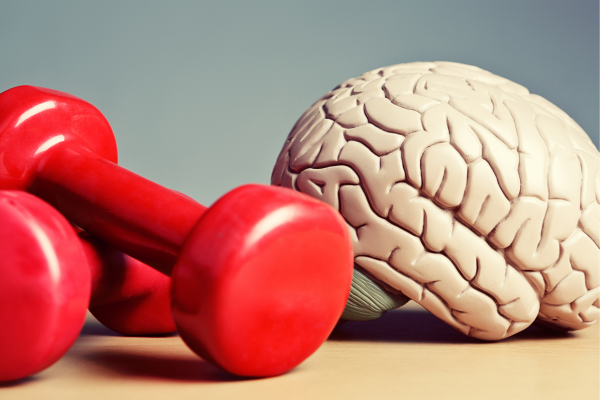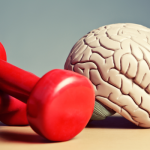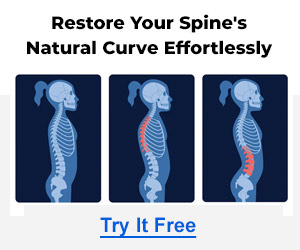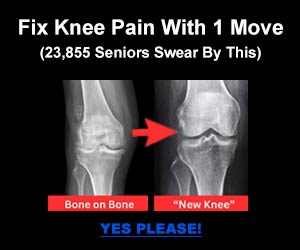What if I told you your brain is already declining—starting in your 30s?
Scary, right?
But here’s the good news: it doesn’t have to be this way.
Mental fitness isn’t just a buzzword. It’s your brain’s lifeline, and understanding how to keep your brain sharp as you age is the key to staying mentally strong for decades to come.
Are you noticing lapses in memory? Or do you simply want to future-proof your brain and cognitive function?
These strategies can help you push back against brain decline and take control of your cognitive health.

The Brain Decline Myth
They’ve been lying to you.
The idea that your brain is destined to slow down as you age? Total nonsense.
Yes, aging brings changes, but the real problem isn’t your age—it’s how you’re using (or not using) your brain.
Here’s why the “natural decline” story is a myth.
For years, we’ve been told that cognitive abilities peak in early adulthood and then nosedive after 30.
This outdated belief has convinced people that forgetting names, struggling with focus, or losing mental sharpness is inevitable. It’s not.
Science proves otherwise.
Your brain has an incredible ability called neuroplasticity. This means your brain is constantly adapting, creating new pathways, and strengthening connections when you challenge it.
In simpler terms, your brain works like a muscle—the more you push it, the stronger it becomes.
So why do people believe in decline?
It’s because most adults stop training their brains. They fall into routines, avoid mental challenges, and neglect the habits that keep their minds active.
This lack of effort, not age, is what causes the noticeable dip in brainpower.
Your brain isn’t doomed. It’s been tricked into complacency.
Start treating it like the dynamic, adaptable powerhouse it is, and you’ll see that staying sharp as you age is totally possible.

The Top Brain Killers You’re Probably Ignoring
Your brain isn’t slowing down for no reason—it’s under attack.
And the worst part?
Most of the damage comes from habits you don’t even realize are sabotaging your mental fitness.
Chronic Stress and Cortisol Overload
Stress isn’t just in your head.
When you’re constantly stressed, your body releases cortisol, a hormone that, when it sticks around too long, wreaks havoc on your brain.
Cortisol kills neurons, shrinks your hippocampus (the memory hub), and leaves you stuck in a fog.
Poor Diet
Think sugar is just bad for your waistline? It’s even worse for your brain.
High sugar intake causes inflammation, disrupts communication between brain cells, and can lead to memory problems.
If you want your brain to fire on all cylinders, it’s time to rethink what’s on your plate.
Sleep Deprivation
Skip a few hours of sleep, and your brain pays the price.
Sleep isn’t just rest. It’s when your brain cleans out toxins and strengthens memory.
Without enough quality sleep, your ability to focus, learn, and recall information takes a serious hit.
Sedentary Lifestyle: Move or Lose It
Sitting all day isn’t just bad for your body. It’s also a death sentence for your brain.
Movement increases blood flow, delivering oxygen and nutrients your brain needs to stay sharp.
The less you move, the less your brain can function at its peak.

Train Your Brain Like a Muscle
Your brain is a muscle that needs to be worked if you want it to stay strong.
Here’s how to give it the training it deserves.
Physical Exercise
You’ve heard of the mind-muscle connection, but it’s not just for crushing biceps curls.
When you move, your brain benefits.
Aerobic exercise has been proven to grow your hippocampus, the part of your brain responsible for memory and learning.
Think of it as brain hypertrophy. The more you move, the sharper you stay.
Cardio, strength training, even a brisk walk—it all counts.
The science is simple: sweat more, think better.
Mental Workouts
If you’re not pushing your brain, you’re letting it stagnate.
Learning a new skill, solving puzzles, or tackling creative challenges forces your brain to build and strengthen neural connections.
Want to sharpen your memory, problem-solving, and focus? Get out of your comfort zone.
Learn an instrument. Try a new language. Even something as simple as a daily Sudoku or crossword can jumpstart your mental gains.

Nutrition for a Sharper Mind
Your brain doesn’t just need exercise—it needs the right fuel.
What you put in your body has a direct impact on how sharp, focused, and resilient your mind stays.
Omega-3s
Your brain is about 60% fat, and omega-3 fatty acids are the premium fuel it craves.
These fats support brain cell structure and improve communication between neurons.
Translation: better memory, faster thinking, and sharper focus.
Load up on fatty fish like salmon, walnuts, and flaxseeds to keep your brain firing on all cylinders.
Antioxidants
Every day, your brain fights an internal battle against inflammation and oxidative stress, which can kill brain cells and slow cognition.
Found in colorful fruits and vegetables like berries, spinach, and dark chocolate, antioxidants neutralize harmful free radicals and keep your brain protected.
Hydration
Dehydration doesn’t just leave you feeling thirsty—it wrecks your focus, memory, and energy.
Even a small dip in hydration levels can impair brain function.
Make water your best friend, and aim for consistent hydration throughout the day.

The Role of Supplements in Mental Fitness
While a balanced diet and healthy lifestyle lay the foundation for mental fitness, supplements can give your brain the extra edge it needs to stay sharp as you age.
Supplements aren’t a replacement for a healthy lifestyle, but they’re powerful tools to fill the gaps and optimize your mental performance.
Pair them with proper nutrition, exercise, and sleep, and you’ll set your brain up for long-term success.
Let’s break down three essentials that can support your cognitive health and keep your brain performing at its best.
Omega-3s
Omega-3 fatty acids, particularly DHA, are critical for brain cell structure and function.
They enhance communication between neurons, improve memory, and even reduce the risk of cognitive decline.
If you’re not eating fatty fish regularly, a high-quality omega-3 supplement is a must. [1]
Probiotics
Your gut isn’t just about digestion—it’s directly linked to your brain.
Probiotics improve gut health, which in turn supports the production of neurotransmitters like serotonin.
A healthy gut can mean better mood, sharper focus, and reduced brain fog.
Look for a probiotic with diverse strains to maximize benefits for mental fitness. [2]
Vitamin D3 with Magnesium
Vitamin D3 is essential for brain health, impacting memory, mood, and neuroplasticity.
But here’s the catch—it can’t work effectively without magnesium.
Magnesium activates vitamin D3, ensuring your brain gets the full benefits.
Together, they promote cognitive function, reduce inflammation, and protect against brain aging. [3] [4]

Stay Sharp with the Critical Health Stack
Your brain deserves as much attention as your body.
By prioritizing mental fitness with the right habits, nutrition, and supplementation, you can stay sharp, focused, and resilient no matter your age.
Small daily changes lead to big results, and the time to start is now.
Unlock a new level of health with the Critical Health Stack, a powerful trio designed to fuel your body and mind.
This stack includes:
- Vitamin D3 + Magnesium for cognitive function, mood support, and optimal nutrient activation.
- Omega-3s for sharper memory, better focus, and reduced inflammation.
- Probiotics to strengthen the gut-brain connection, enhance mood, and combat brain fog.
Don’t settle for average when your brain deserves the best.
Click here to get started with the Critical Health Stack and give your mental fitness the boost it needs.
References
Frontiers in Pharmacology
Kumar A, Sivamaruthi BS, Dey S, Kumar Y, Malviya R, Prajapati BG, Chaiyasut C. Probiotics as modulators of gut-brain axis for cognitive development. Front Pharmacol. 2024 Feb 20;15:1348297. doi: 10.3389/fphar.2024.1348297. PMID: 38444940; PMCID: PMC10912297.
The Cureus Journal of Medical
Anjum I, Jaffery SS, Fayyaz M, Samoo Z, Anjum S. The Role of Vitamin D in Brain Health: A Mini Literature Review. Cureus. 2018 Jul 10;10(7):e2960. doi: 10.7759/cureus.2960. PMID: 30214848; PMCID: PMC6132681.
Frontiers in Endocrinology
Patel V, Akimbekov NS, Grant WB, Dean C, Fang X, Razzaque MS. Neuroprotective effects of magnesium: implications for neuroinflammation and cognitive decline. Front Endocrinol (Lausanne). 2024 Sep 25;15:1406455. doi: 10.3389/fendo.2024.1406455. PMID: 39387051; PMCID: PMC11461281.















































































